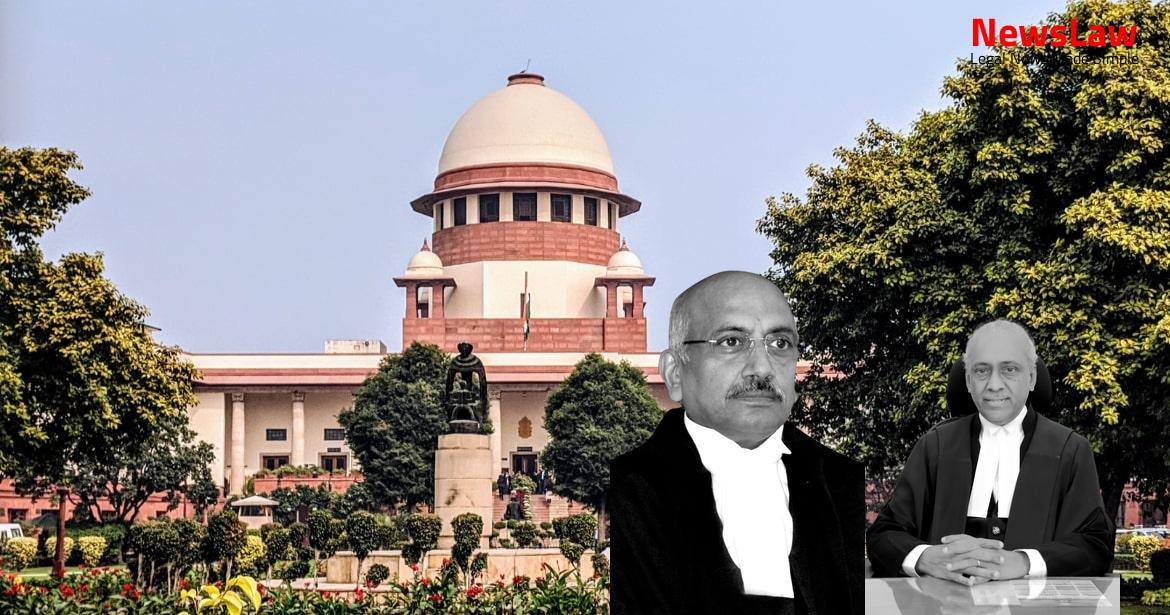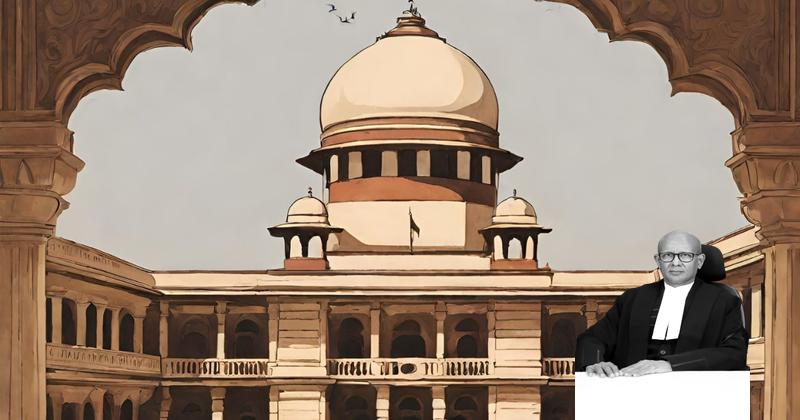Explore the in-depth legal analysis conducted by the court regarding the interpretation of the Nationalisation Act’s definition of ‘mine’. The court’s scrutiny of the Act’s provisions provides valuable insights into the broader implications for property rights and ownership. Stay tuned to learn more about this significant legal case!
Facts
- The District Court passed an order dated 28.09.2000 allowing the appeal of the appellant herein and directing eviction.
- The order of the District Court was set aside by the High Court by an order dated 17.07.1998 in a writ petition filed by the respondents.
- The Estate Officer passed a fresh order dated 08.03.1989 dropping the eviction proceedings on the ground that the respondents were authorized occupants.
- The said order of the Estate Officer was set aside by the District Court by an order dated 08.08.1990 in an appeal filed by the appellant herein under Section 9 of the Act.
- The matter got back to the District Court by way of remand for a fresh disposal.
- The order of the Single Judge was confirmed by the Division Bench in an intra-court appeal.
- The main question was whether the property occupied by the respondents fell under the definition of ‘mine’ in Section 2(h) of the Nationalisation Act.
Also Read: Undisclosed Conviction for Dharna Under Police Act Leads to Overturned Election
Issue
- The issue to be determined is whether the property in question is subject to nationalization under the Nationalisation Act, given that it was purchased by Jamini Mohan Majumdar prior to the Act coming into effect on 01.05.1973.
Also Read: Critical Analysis of Legal Principles in a High-Profile Criminal Case
Arguments
- Respondents cannot rely on a Court Commissioner’s report conducted after nationalization.
- Reliance placed on the case of New Satgram Engineering Works & Another vs Union of India & Ors.
- Question of whether something is a ‘mine’ is a question of fact.
- When facts are disputed, parties can be directed to the civil court.
- Paragraph 16 of New Satgram decision supports respondent’s contention.
- Bharat Coking Coal Ltd. Vs. Madanlal Agrawal decision clarifies the issue.
Also Read: Interpretation of Stamp Duty Provisions
Analysis
- The objections raised by the respondents regarding the ownership of the property and its use as a coal mine are not valid in light of the statutory provisions.
- The Nationalisation Act transferred ownership of specified coal mines to the Central Government on the appointed day.
- The sale deed for the disputed property mentioned its reduced fertility due to ongoing colliery workings, indicating its connection to a mine.
- The definition of ‘mine’ under the Nationalisation Act includes lands and buildings used for management, offices, or staff residences.
- The ownership of the land or its specific use as a colliery is immaterial if it falls under the broad definition of ‘mine’ in the Act.
- The Act focuses on the property itself rather than the owner, making the transfer of ownership to the Central Government applicable regardless of ownership.
- The Act’s definition of ‘mine’ is broad and includes properties wherever situated.
- The Nationalisation Act’s approach to coal mine nationalization is akin to similar acts for institutions like banks and insurance companies.
- The Nationalisation Act, 1973 transfers the right, title, and interest of owners in relation to specified coal mines to the Central Government.
- The Act defines a ‘mine’ to include various elements such as excavations, borings, shafts, open cast workings, conveyors, and more.
- The transferred assets include not only the physical structures of the mine but also coal, power stations, workshops, and other fixed assets.
- Assets used for washing coal, manufacturing coke, management offices, and staff residences are also included in the transfer.
- The Act aims to vest control of coal mines in the Central Government, ensuring that all associated assets and operations are transferred to their ownership.
- The extended meaning of the word ‘mine’ was clarified to ensure uninterrupted coal mining activity.
- The Act should not be interpreted in a manner that hinders coal mining operations or nationalization of coal mines.
Decision
- The High Court orders are in violation of statutory prescriptions.
- The appeal is allowed, High Court orders are set aside, and the writ petition is dismissed.
- Order of eviction is confirmed.
- No costs awarded.
Case Title: M/S BHARAT COOKING COAL LTD. Vs. MAHENDRA PAL BHATIA . (2022 INSC 379)
Case Number: C.A. No.-005377-005377 / 2015



